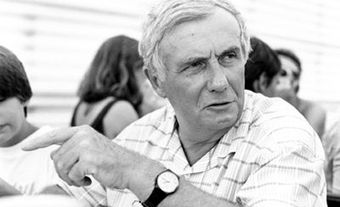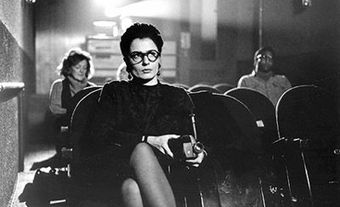Robert Verrall, producer, director, animator, administrator (born at Toronto 13 Jan 1928). Robert Verrall is a veteran National Film Board of Canada (NFB) producer who was one of the first to join the NFB as an animator in 1945 under Norman McLaren. Verrall contributed to such NFB classics as The Romance of Transportation in Canada (1952; Oscar nominee and winner of the Palme d'Or for animation at the Cannes Film Festival), The Great Toy Robbery (1964) and What on Earth! (1966; Oscar nominee). In 1967 he was appointed director of English animation, and went on to work with Colin Low and Wolf Koenig and to develop the talents of Derek Lamb, Les Drew and Kaj Pindal. Verrall was appointed director of English production in 1972. In the 1980s he acted as executive producer on a number of NFB co-productions, including the features The Wars (1983) and The Tin Flute (1983), and the Oscar-nominated short The Painted Door (1984).
His other notable films include Three Blind Mice (1945; animated with George Dunning), Age of the Beaver (1952; animated), The Colour of Life (1955; animated with Evelyn Lambart), A Is for Architecture (1959; co-directed) and Hors-d'oeuvre (1960; directed and animated with Gerald Potterton). Verrall also produced or executive-produced The Drag (1965; Oscar nominee), Cosmic Zoom (1968), To See or Not to See (1969; Canadian Film Award), Evolution (1971; Oscar nominee), Christmas at Moose Factory (1971), Hot Stuff (1971), The Family that Dwelt Apart (1973; Oscar nominee), Going the Distance (1979; Oscar nominee for feature documentary), Democracy on Trial: The Morgentaler Affair (1984), Incident at Restigouche (1984), The Masculine Mystique (1985) and Richard Cardinal: Cry from a Diary of a Métis Child (1986).
Robert Verrall is the father of David Verrall, a senior producer with the NFB.

 Share on Facebook
Share on Facebook Share on X
Share on X Share by Email
Share by Email Share on Google Classroom
Share on Google Classroom


